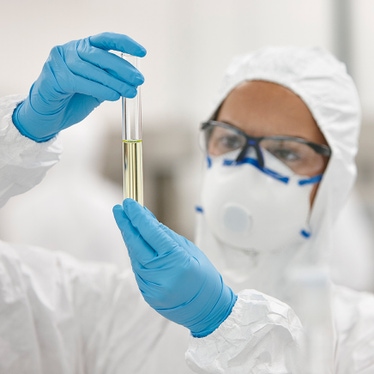
Explore our solutions
Biologics potency
We can help deliver consistent evaluation of a biological drug’s critical quality attributes such as stability during development, and its impact on dosage and activity.
With relative potency of a biological drug product being determined by comparing the biological response with a control via determination of mode of action, we offer a range of bioassays to aid this assessment.
Our bioassays, including cell-based assays, help determine the potency and evaluate the reproducibility and stability of your drug product. While our assay platforms, automation, and bioanalytical solutions can offer high throughput workflows for you to establish reliable methods when determining potency during your late-stage drug discovery.

HTRF
HTRF technology performs as cellular or biochemical assays in competitive and non-competitive formats.
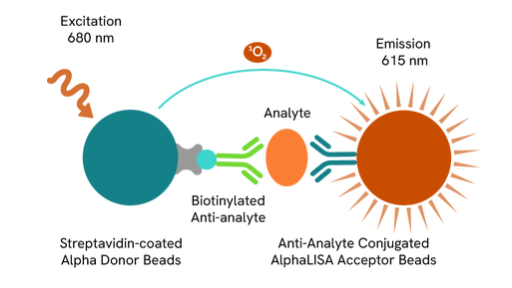
Alpha Assays
Virtually any target can be quickly and easily measured using Alpha technology, an improved alternative to quantitative ELISA assays and ELISA reagents.

Cell Counting and Image Cytometry
Revvity offers a leading portfolio of automated cell counters, image cytometry systems, and cell counting reagents and consumables.
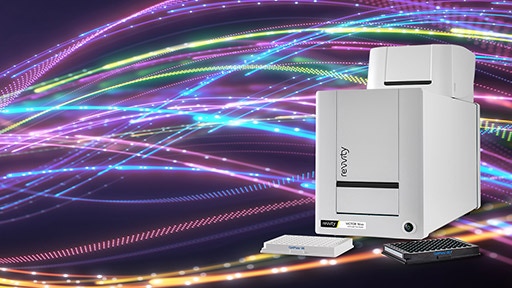
Microplate Readers
As many of you know, microplate readers are instruments used to detect biological, chemical, biochemical or physical events from samples in a microplate.
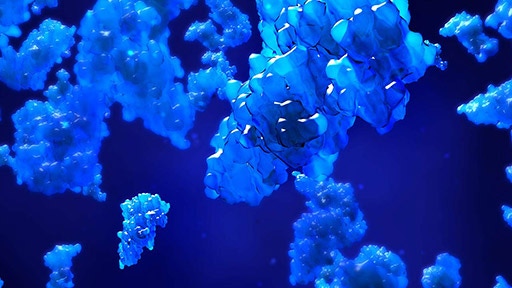
Microfluidic Protein Characterization
Proteins differ from each other in their size, molecular structure, and physiochemical properties.

Liquid Handling Workstations
With dedicated workstations designed for a diverse variety of applications, along with the ability to customize the liquid handling workstations
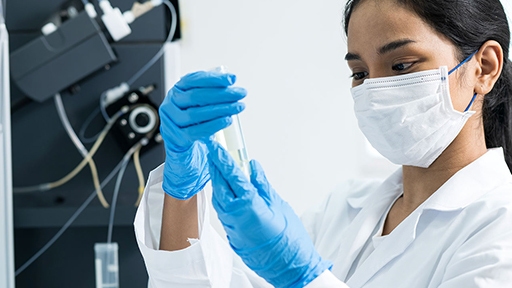
Customization Services
Extend your lab’s capabilities with our experts in reagent and assay technologies and detection instrumentation.
Biologics identity
Helping you test and confirm the identity of your large molecule drug with innovative integrated technologies and expertise so you can establish the specific type of therapeutic that’s being developed.
With a variety of techniques available to confirm the identity of the biological product (monoclonal antibody, recombinant protein, nucleic acid vectors or viral vectors), we can support to assist downstream characterization, scale up, purification, and compliant release of the final product.
We offer a wide array of molecular, biochemical, bioanalytical, and analytical solutions to help facilitate unambiguous detection of the large therapeutic molecule of interest and mitigate several of the challenges faced in the later stages of drug development.

JANUS Workstations
The JANUS™ G3 automated liquid handling workstations offer flexible automated sample preparation solutions to meet your specific application needs.

Microfluidic Protein Characterization
Proteins differ from each other in their size, molecular structure, and physiochemical properties.

Microplate Readers
As many of you know, microplate readers are instruments used to detect biological, chemical, biochemical or physical events from samples in a microplate.
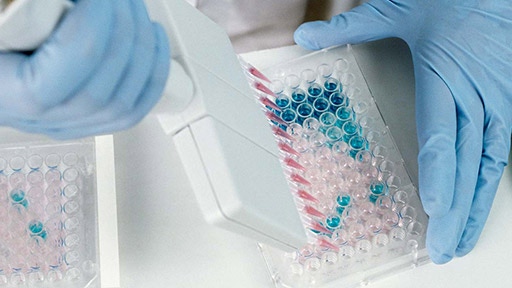
Immunoassays
Since their introduction in the 1950’s, immunoassays have been an integral part of research and drug discovery.
Biologics purity & impurity profile
Simplify the complexity of impurity profiling for the reliability of your drug product. We can help you gain an understanding of the potential host cell proteins, nucleic acids, and process related impurities and the acceptable limits.
Bacterial or fungal burdens need to be determined per USP/EP guidelines through microbial testing, whilst viruses are detected with several in vitro and in vivo assays. In addition, for viral vector development such as Adeno-Associated Virus (AAV), viral capsid characterization is assessed for varying degrees of encapsidation – empty, partial, and full genome capsids.
We offer innovative which are designed to help streamline impurity profile workflows and maintain GMP compliance in drug discovery and development.
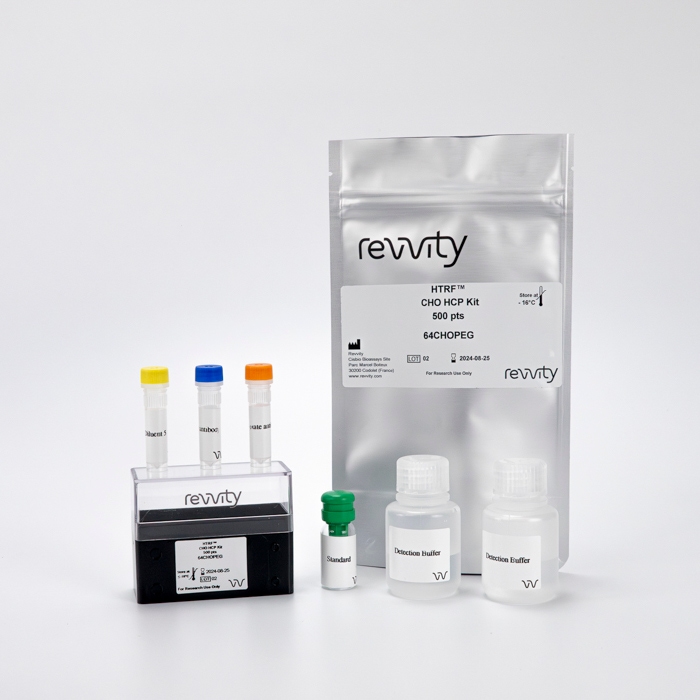
HTRF CHO HCP Detection Kit, 500 Assay Points
The CHO Host Cell Protein (HCP) kit measures contaminants originating from the CHO cells used to manufacture therapeutic antibodies. The kit can be used for the quantification of CHO HCP proteins in routine bioprocess operations, from the completely raw harvest material to the final product. The simple and robust procedure benefits from increased throughput compared to ELISA.
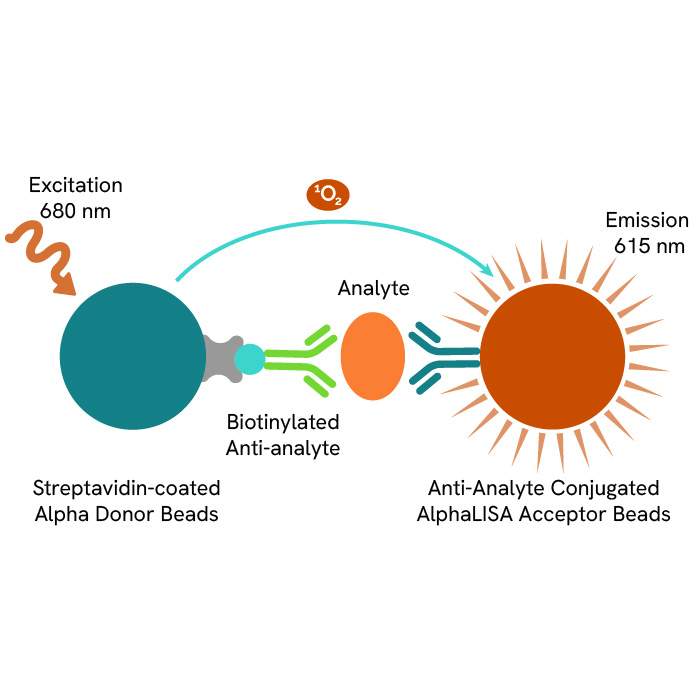
AlphaLISA CHO HCP Detection Kit, 100 Assay Points
CHO cells are widely used expression hosts for recombinant proteins and are utilized for the generation of monoclonal antibodies. The CHO Host Cell Proteins (HCP) kit is designed to measure contaminants originating from the CHO cells used to manufacture therapeutic antibodies. This kit can be utilized to quantify CHO HCP proteins at various stages, from routine bioprocess operations to crude harvest materials to final products. Our simple procedure and robust assay offer increased throughput compared to ELISA.
Formats:
- Our 100 assay point kit allows you to run 100 wells in 96-well format, using a 50 µL reaction volume (5 µL of sample).
- Our 500 assay point kit allows you to run 500 wells in 96-well or 384-well format, using a 50 µL reaction volume (5 µL of sample).
- Our 5,000 assay point kit allows you to run 5,000 wells in 96-well or 384-well format, using a 50 µL reaction volume (5 µL of sample).
Features:
- No-wash steps, no separation steps
- ELISA alternative technology
- Sensitive detection
- Broad sample compatibility
- Small sample volume
- Results in less than 3 hours
- Half the time of an ELISA assay
AlphaLISA technology allows the detection of molecules of interest in a no-wash, highly sensitive, quantitative assay. In an AlphaLISA assay, a biotinylated anti-analyte antibody binds to the Streptavidin-coated Donor beads while another anti-analyte antibody is conjugated to AlphaLISA Acceptor beads. In the presence of the analyte, the beads come into close proximity. The excitation of the Donor beads causes the release of singlet oxygen molecules that triggers a cascade of energy transfer in the Acceptor beads, resulting in a sharp peak of light emission at 615 nm.

AlphaLISA HEK 293 HCP Detection Kit, 100 Assay Points
Human Embryonic Kidney (HEK) 293 is a cell line commonly used for research and biopharmaceutical production. The HEK Host Cell Proteins (HCP) kit is designed to measure contaminants originating from the HEK cells used to manufacture therapeutic antibodies. This kit can be utilized to quantify HEK HCP proteins at various stages, from routine bioprocess operations to crude harvest materials to final products. Our simple procedure and robust assay offer increased throughput compared to ELISA.
Formats
- Our 100 assay point kit allows you to run 100 wells in 96-well format, using a 50 µL reaction volume (5 µL of sample).
- Our 500 assay point kit allows you to run 500 wells in 96-well or 384-well format, using a 50 µL reaction volume (5 µL of sample).
- Our 5,000 assay point kit allows you to run 5,000 wells in 96-well or 384-well format, using a 50 µL reaction volume (5 µL of sample).
Features
- No-wash steps, no separation steps
- ELISA alternative technology
- Sensitive detection
- Broad sample compatibility
- Small sample volume
- Results in less than 4 hours
- Half the time of an ELISA assay
AlphaLISA technology allows the detection of molecules of interest in a no-wash, highly sensitive, quantitative assay. In an AlphaLISA assay, a biotinylated anti-analyte antibody binds to the Streptavidin-coated Donor beads while another anti-analyte antibody is conjugated to AlphaLISA Acceptor beads. In the presence of the analyte, the beads come into close proximity. The excitation of the Donor beads causes the release of singlet oxygen molecules that triggers a cascade of energy transfer in the Acceptor beads, resulting in a sharp peak of light emission at 615 nm.

AlphaLISA Host Cell Residual DNA Detection Kit, 500 Assay Points
Formats:
- Our HV (100 assay point) kits allow you to run 100 wells in 96-well format, using a 100 µL reaction volume (10 µL of sample).
- Our 500 assay point kit allows you to run 500 wells in 96-well or 384-well format, using a 50 µL reaction volume (5 µL of sample).
- Our 5,000 assay point kit allows you to run 5,000 wells in 96-well or 384-well format, using a 50 µL reaction volume (5 µL of sample).
Features:
- No-wash steps, no separation steps
- ELISA alternative technology
- Sensitive detection
- Broad sample compatibility
- Small sample volume
- Results in less than 3 hours
- Half the time of an ELISA assay
Biologics can be impacted negatively by contamination with DNA introduced during fermentation and purification processes. While the use of serum-free media in the manufacturing process significantly improved the success rate on preventing DNA impurities, other routes of contamination, such as microbial contamination, still remain a concern. It is thus critical to remove and monitor DNA impurities at each step in the purification process. This kit is designed to quantify the levels of DNA (from different hosts, either double- or single-stranded and of varying fragment sizes) in cell culture supernatants.
AlphaLISA technology allows the detection of molecules of interest in a no-wash, highly sensitive, quantitative assay. In an AlphaLISA assay, a biotinylated anti-analyte antibody binds to the Streptavidin-coated Donor beads while another anti-analyte antibody is conjugated to AlphaLISA Acceptor beads. In the presence of the analyte, the beads come into close proximity. The excitation of the Donor beads causes the release of singlet oxygen molecules that triggers a cascade of energy transfer in the Acceptor beads, resulting in a sharp peak of light emission at 615 nm.

Microfluidic Nucleic Acid Analysis
Now you can simplify traditional gel separations, while improving the reproducibility of your data in a fraction of the time.
In vitro assay
Leverage reliable in vitro assays to help better understand the interactions of the innate and adaptive immune response for your discovery and development of immunotherapies
We offer a range of assays for characterizing cytokine response, screening biologics, measuring signalling events, determining mechanism of action, and understanding the antibody-dependent cellular cytotoxicity (ADCC) of the biologic.

Luminescence Assays
Luciferase assays allow for the study of transcriptional gene expression, virus life cycles, and cell viability.

Radiometric Detectors
Radiometric detection has long been and remains today as the gold standard used by researchers in many scientific applications such as analyzing drug pathways, protecting lab environments, assessing environmental contamination, and monitoring food safety.

Radionuclides
Radionuclides provide a highly specific and sensitive labeling option for proteins, cells, and tissues.

Immune Cell Screening
Preclinical screening services using primary human immune cells to address biologically relevant questions for target identification and lead optimization

Immunoassays
Since their introduction in the 1950’s, immunoassays have been an integral part of research and drug discovery.

Microplate Readers
As many of you know, microplate readers are instruments used to detect biological, chemical, biochemical or physical events from samples in a microplate.





























